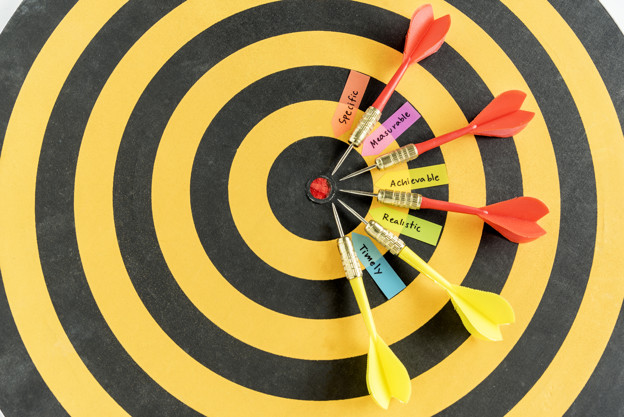
Although mental health issues are slowly being destigmatized, this is an exhausting process, especially when mentioned in the work environment, which makes addressing them and dealing with them even more complicated than it seems. The vast majority of people experience mental health problems at least once in their lifetime, which has been proven through numerous researches and surveys.
Everything from mild forms of anxiety, to more serious psychological issues such as depression or personality disorders, can seriously affect all the aspects of one’s life and its normal functioning. At the beginning of the healing process, the focus is on finding the roots of the issue, and receiving the right treatment, whether it’s medications or any other type of therapy.
What happens after the therapy?

However, what happens when the therapy is over? Does the world continue to function the same as it used to before? The world surely doesn’t stop if your micro world is imbalanced in some way. But you’re probably unable to understand that in the middle of your personal crisis. This is why talking about getting back to normal after experiencing some mental health issues may be almost as important as the treatment itself. Acknowledging that people need recovery from mental health problems just like they need it when they experience any other health issue is highly significant towards helping people to accept those problems as something normal and to overcome them over time. Imagine you broke your leg. You will surely need rehabilitation, physical therapy, medications, and most importantly – time to heal. Why would it be any different with your anxiety or depression?
Treating mental health problems is usually a long and difficult process. This is due to the complexity of the human brain, which to this day, hasn’t been completely explained, explored, and demystified. But that is not the only reason. The treatment itself lasts much longer than treatments for other health problems, and they are often costly and energy-draining. All of this can be challenging for a person who doesn’t feel well, especially when she realizes that she needs to open to a complete stranger and reveal her deepest emotions, memories, and trauma, as well as all the insecurities and self-esteem problems. The path towards healing is made of countless changes that should make one’s life better in the end. Living a healthy life, spending quality time with people, and feeling productive, happy and confident, is the ultimate goal of every person who seeks the help of a professional.
Is it that easy?

Still, even after the therapist confirmed that a person has significantly improved their mental health, and advised her to slowly get back to normal, it’s not the easiest thing to do. The adaptation to normal may seem intimidating and overwhelming since the ‘new normal’ took over and lasted for quite some time. Breaking down the vicious cycle of bad habits, automatic negative thoughts, along with the treatment of the body’s intense response to psychological triggers, are some of the most common challenges in the everyday life of a person who’s been trying to get back to its usual routine. Luckily, there are some techniques that have been proven as effective, as well as some main points to focus on, in case of experiencing some of the recurring health problems. No matter the level of progress, here are some general tips and tricks on how to get back to normal after having mental health issues:
1. SET CLEAR GOALS

The research has shown that setting clear goals is essential for one’s personal recovery. The worst thing that could happen to you is having no goals or aspirations for the future. If you focus on one or even several goals, it will drive you forward, giving you the much-needed strength on a daily basis. Working towards your chosen goal will energize you and motivate you to reach it, while the very process of getting there will be a powerful stimulus too – not only will you feel more empowered to do your daily tasks, but envisioning your future goal will help you finish your daily tasks.
2. SURROUND YOURSELF WITH PEOPLE

Spending time alone is somewhat necessary. However, going back to your workplace and having your normal work routine back, will help you cope with possible difficulties you may experience alone. Socializing is a very important aspect of life, not only an important factor in recovery. Don’t forget about spending time with your family and your friends, too. Being surrounded by love and support can significantly improve your self-esteem and help you heal emotionally. Sharing your thoughts, worries and everything you have on your mind is another powerful tool for keeping your mental health in great shape. You can share inner feelings by writing them down, you can even share them at platforms like The Doe. Not to mention the serotonin levels when hugging. Don’t forget to hug me!
3. BE GENTLE WITH YOURSELF

According to centreforum.org, expecting instant results is sometimes just as bad for your mental health, as it’s bad to ignore the need for therapy. You have to take it slow, step by step, and you have to accept your mental health issues as they are, even if you recovered from them, partially or fully. Not feeling ashamed, guilty, or uncomfortable is extremely important because it allows you to create a better life for yourself. Building your habits from scratch, and slowly making positive changes has been proven as the most effective way to overcome or prevent potential future meltdowns. Feeling stable, secure, and calm is what you should aim for. If that means filtering out the specific people, situations, or surroundings from your life, then go for it!
4. ACCUMULATE SMALL WINS

Accumulating success is easy if you learn how to do it properly. If you make a list of small tasks that you have to do on a daily basis, in the end, you will have great results and a lot of work done. It’s different from having a big goal that makes you anxious because you are aware of its complexity. Break down every project, task, or plan into smaller chunks, and enjoy every small victory you experience. Still, if you don’t accomplish the given tasks, try not to stress about it. Start small, with one or two tasks per day, and when you feel comfortable, start adding more and more tasks every day. You will be amazed by the results in the end!












